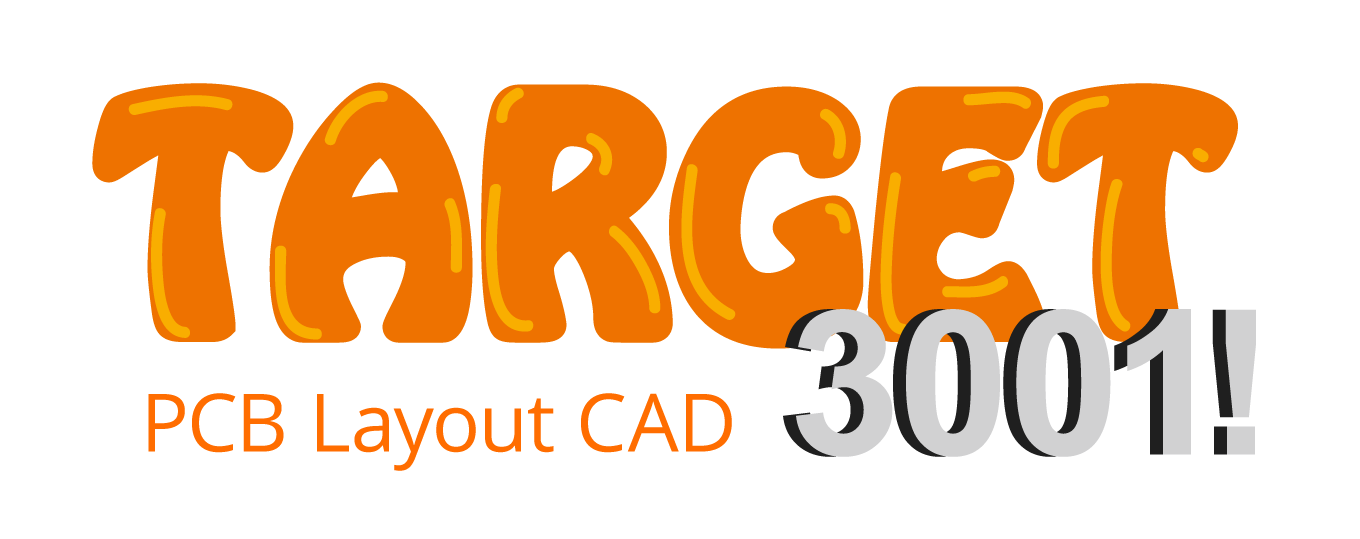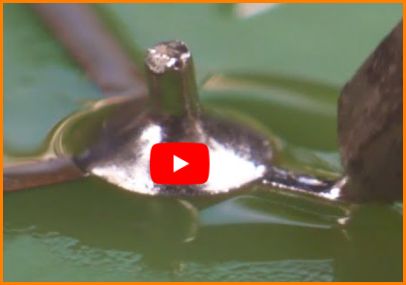Convergence Pad: Difference between revisions
No edit summary |
No edit summary |
||
| Line 15: | Line 15: | ||
In TARGET you can create convergence pads in the "Convergence pads" dialog in the board view in the menu "Actions / Preparatory work":<br><br> | In TARGET you can create convergence pads in the "Convergence pads" dialog in the board view in the menu "Actions / Preparatory work":<br><br> | ||
[[image:Konvergenzpads_dlg_e.jpg|Dialog in TARGET: Convergence Pads|none]]Image: Dialog in TARGET: Making a Pad a Convergence Pad<br> | [[image:Konvergenzpads_dlg_e.jpg|Dialog in TARGET: Convergence Pads|none]]Image: Dialog in TARGET: Making a Pad a Convergence Pad<br><br> | ||
[[image:KonvergenzPadPIC.jpg|Result Convergence Pads|none]]Image: Result Convergence Pads<br><br> | |||
TARGET first tries to use existing traces. The solder resist is removed on these traces accordingly. Otherwise new traces are placed which are also free of solder resist. | |||
<br><br> | <br><br> | ||
Revision as of 18:15, 2 December 2020
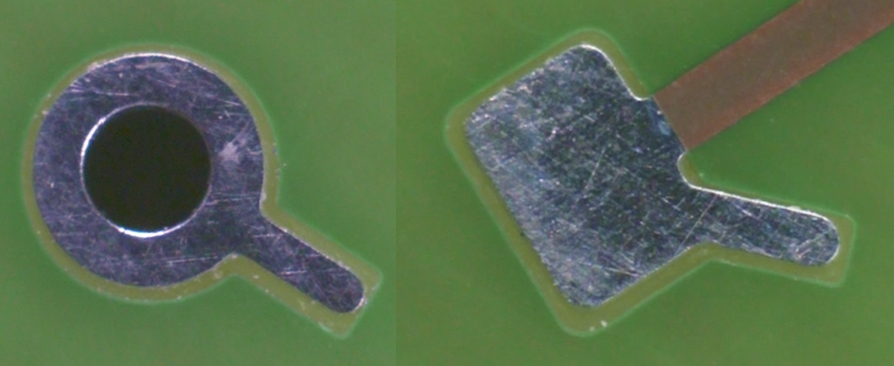
Image:Convergence Pads, left THT, right SMD
The Convergence Pad is an invention of Mr Landulf Skoda. It is an extension of the soldering pad to slowly remove the soldering iron from the pad after soldering. The heat thus leaves the pad in a lateral direction and the solder joint cools down very homogeneously. This significantly increases the soldering quality, both during production and repair.
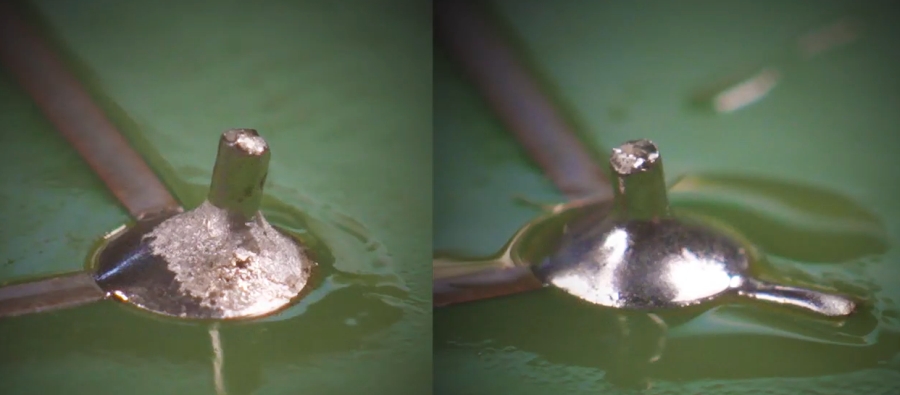
Image: Left: Solder joint has no convergence pad. Right: Solder joint has a convergence pad
There is a video by Ersa illustrating the effect very well:
The Convergence Pad is patented and for commercial use a licence must be obtained from Mr Skoda: Landulf Skoda
In TARGET you can create convergence pads in the "Convergence pads" dialog in the board view in the menu "Actions / Preparatory work":
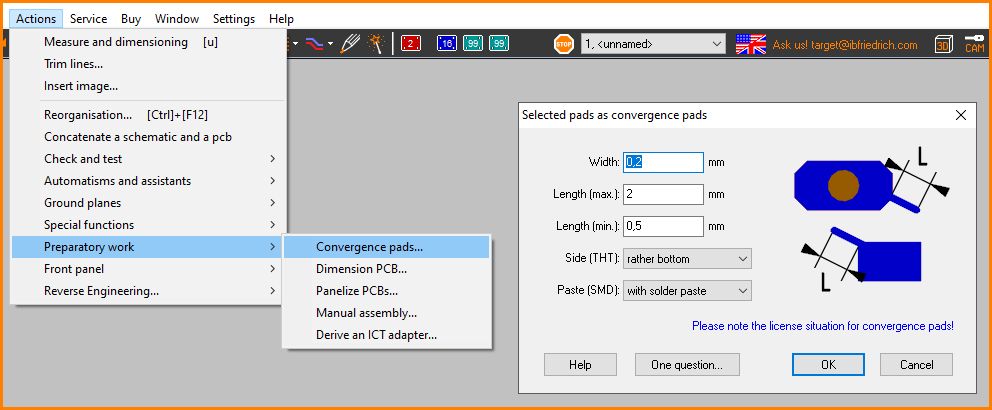
Image: Dialog in TARGET: Making a Pad a Convergence Pad
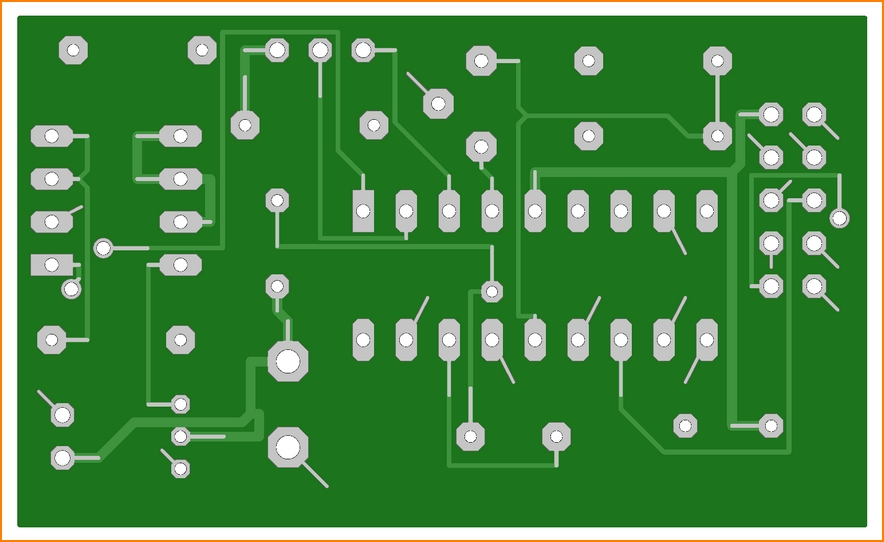
Image: Result Convergence Pads
TARGET first tries to use existing traces. The solder resist is removed on these traces accordingly. Otherwise new traces are placed which are also free of solder resist.
alias: soldering tag, soldering flag, pad with ligament, pad with bar.
